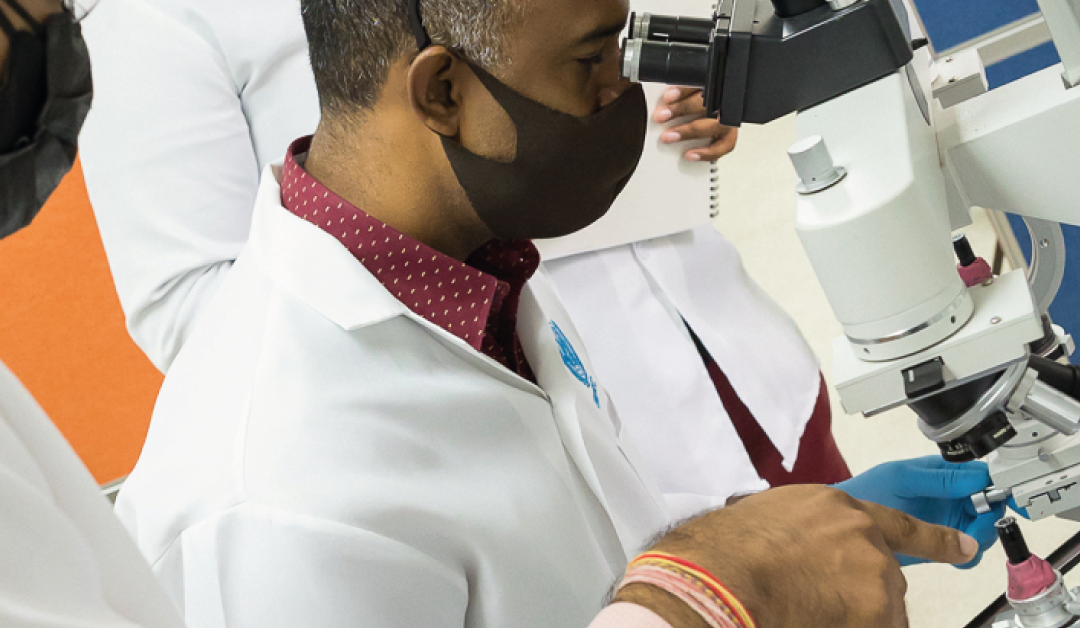On 14 March 2022, the United Nations Regional Centre for Peace, Disarmament and Development in Latin America and the Caribbean (UNLIREC), delivered a Firearms Identification Workshop: From Crime Scene to Court, in Trinidad and Tobago.
The workshop, aimed at investigators, prosecutorial and public defense agencies, judicial officers, legal officers and policy personnel, showcased several approaches to firearms identification, covering topics such as firearms and ammunition identification; comparative pattern analysis; ballistic imaging; shooting reconstruction; and court testimony.
Firearm identification and examination involve the analysis of firearm-related evidence. While this typically includes comparing firearms and fired bullets and cartridge cases to determine if those bullets or cartridge cases could have been fired from the firearm, it can and usually does, involve much more. The workshop explored the examination of firearms to determine if they are functional or modified to function in a way that was not intended by the manufacturer. It also covered the restoration of serial numbers that have been obliterated from the firearms, often stolen, to prevent the tracing of the firearm which would allow law enforcement agencies to identify the last known point of possession. Another key area presented was the process of examining fired bullets or cartridge cases from a crime scene to compare them with any recovered, unfired ammunition. Shooting reconstructions are also a relatively common process that was touched upon, which provides information that can corroborate or refute various accounts of a shooting. And importantly, the use of ballistic imaging technology, which involves the imaging of fired bullets a from crime scenes to be searched against a database of like entries to determine the potential that the same firearm was used at other shooting scenes, was also explored.
One hundred and twenty officials, including seventy-four women, from the Judiciary, Office of the Director of Public Prosecutions, Public Defenders Department, Ministry of National Security, Police Service, Forensic Science Centre, Ministry of the Attorney General and Legal Affairs, Strategic Services Agency and Police Complaints Authority participated in the workshop.
The Firearms Identification Workshop contributes towards the implementation of Goal 3 of the Caribbean Firearms Roadmap, Bolster law enforcement capacity to combat illicit firearms and ammunition trafficking and their illicit possession and misuse, and ammunition, and ultimately reducing firearms-related crimes and armed violence in the Caribbean. The course was made possible with the financial support of the government of the United Kingdom of Great Britain and Northern Ireland.
UNLIREC, as the regional centre of the UN Office for Disarmament, seeks to advance the cause of practical disarmament in Latin America and the Caribbean as part of its commitment to support Member States in their implementation of international disarmament and non-proliferation instruments, in particular, the Programme of Action on Small Arms.

